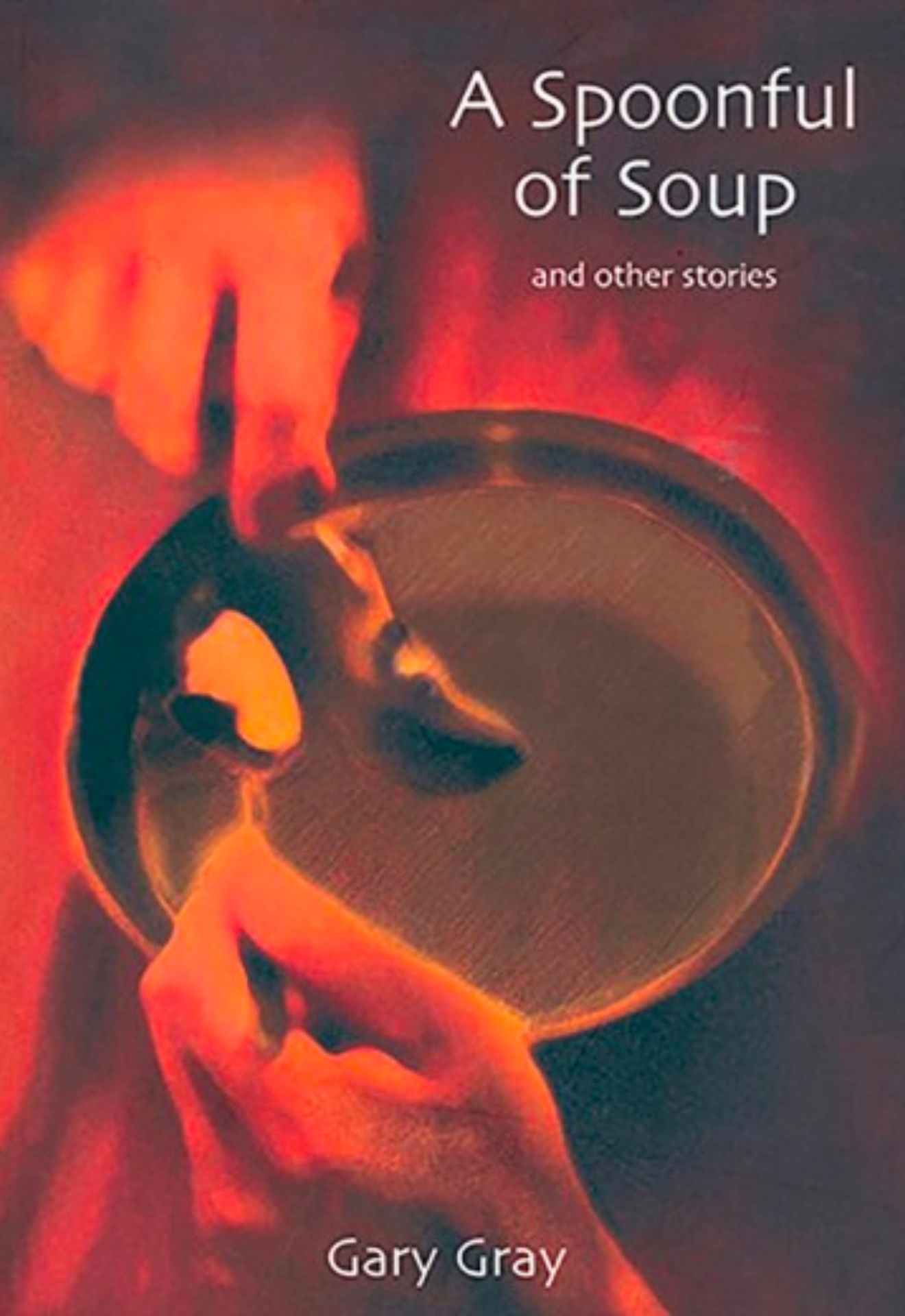David, My Friend
| A short story by Melbourne writer Gary Gray. His simply written stories of life during war and survival have been widely acclaimed. |
|
“What are they doing?” I ask myself every time I see them standing on a street corner in front of those yellow tripods looking through a kind of camera-like apparatus hooked onto them and signalling to some other chap 20 or 30 metres away, holding a long wooden pole with some black, red and white signs painted on it. Actually, to be frank, I do know who they are and I know what they are doing. I also know that every time I see them I see “HIM”. His nice, pale, soft and delicate oval face and that funny hat on his partly bald head. I see David – David Krauskopf I mean. |
| --o0o----o0o----o0o----o0o----o0o----o0o-- |
|
1942 Birkenheim, near Katowice (not to be confused, God forbid with Birkenau near Auschwitz) was my first slave labour camp. I landed there on Hitler’s birthday, April 1942. It wasn’t really such a bad lager compared to others I had the “privilege” to experience in the following years. It was small, about three barracks with only about 150 of us, most from places surrounding my home town Sosnowiec. It didn’t take more than a week or two for me, a young 13-year old boy straight from my parents’ arms, so to speak, to learn what it means to be hungry, to be woken up at 5 o’clock in the morning, to be wet when it was raining and to sweat when it was too sunny, and to work from 6 am to 6 pm. It didn‘t take me more than a week or two to realise how important it was to be selected to a good commando or arbeitstelle as we called the workplace. It didn’t surprise me when on one morning appel my new friend Heniek (who was old enough to be my father) tapped me on my shoulder. “Look at him”. Heniek pointed his finger at the row where at the end of the column stood a lonely prisoner, 40 or so, a bit bald, with that funny looking hat. “Isn’t he lucky!” Heniek continued. “Such a job! Such a job!” “What do you mean lucky?” I asked, “and what do you mean such a job? And, anyway, why is he standing sort of separate from the rest of us?” I asked Heniek. “Come on, tell me.” “Just wait, you will see Gustav. In a few minutes when our column starts marching out to work he will be picked up by an elderly German engineer, Herr Vermesser they call him, a type of land surveyor. He will be working only with him alone, no guards, no foreman, no kapo, only the two of them. When they get to the work place they will pick up that thing and you won’t see them all day until fireabend (end of work).” “Pick up that thing? What do you mean that thing?” “You know Gustav, their tool, a funny looking tripod with what looks like a camera on top, and a long 2 or 3 metre high rod with different hieroglyphic signs painted on it.” “Herr Vermesser” continued Heniek, “will carry a blue leather-covered notebook and HIM, he will shlepp the tripod and the rod, shlepp it from place to place, then stop, move away for approximately 20 or 30 metres from each other and start to work, peacefully, no rush, no hard work, and with a reasonably intelligent German boss who would even share with him from time to time a bit of food that zeine frau, his wife so neatly prepared a night before.” “That’s fantastic” I exclaimed, “but tell me, Heniek, why do you keep saying “him”, him this, him that? Doesn’t the fellow have a name?” “Oh, yes”, Heniek answered, “he does, he is a frumer, every one in camp envies him, but he has a good name and every one likes him.” As I later found out Heniek had a kind of habit to forget things. “But Heniek, what about his name? I asked you ten times.” “Oh, yes, you did ask me. His name is David, David Krauskopf. He is a most respected man from Chrzanow.” I spent the next three years with David and our small group of my and his friends. Through some protectia we stuck together through different camps and finally we were liberated together in 1945. David was liked by everyone in every lager that we went through. Somehow luck was with him through all the camps and he always had a reasonably secure and safe job. Just after the liberation I was told that David migrated to Israel where he opened a small chemical factory producing some glue or other chemical products. Years later by some coincidence when already in Melbourne, I was told that a chap by the name of Krauskopf passed away in Melbourne and his brother came from Israel to organise his funeral here or to take his body for burial in Israel. “It has to be him” I said to myself. I did remember that David had a brother. Yes, it was him. We met here in Melbourne. What a warm and tearful meeting that was! Very short, however as David was to go back within a day or so. For a few years since then I exchanged a few letters with David. When in Tel Aviv some time in the ‘70s, I took a taxi – 15 Lincoln Street, Tel Aviv. I stood in front of the door and rang the bell. I can’t really remember who opened the door, a woman, a wife or sister. “Yes” she asked me in Hebrew. I answered in Polish which she understood. “I came to see David Krauskopf. Is this the right place?” “Yes, you are in the right place. But anyway, who are you?” “My name is Gary, not Gary, Gustav” I corrected myself. “He is my old friend from camp.” “Wait a minute, I’ll go to his room. He is not well you see. Did you say Gustav?” she asked. “What a funny non-Jewish name. And you know him from lager? Wait a minute? She repeated again. “Come, follow me.” And as I did, a strange feeling overcame me. What it was I don’t know when I heard her mumbling something that didn’t make any sense to me. He wasn’t in bed, but in a deep old-fashioned armchair. “He is pale but not looking sick”, I said to myself, a bit disappointed with this cold, strange welcome, or more accurately, no welcome. “Sorry” said the woman “I should have prepared you for that, but he probably doesn’t know who you are.” She bent over him and said in Yiddish “Dos iz Gustav, dein freund fun lager.” She repeated this twice holding her arms around his shoulders. “Gustav, Gustav” David repeated again, like he was trying to remember, but was he really remembering? I didn’t think he did. I had put so much expectation into that forthcoming meeting with David and now I experienced a kind of ebb. A wave of sadness embraced me. I had anticipated some sort of a family reunion, not literal family but Lager family. After all, not many of us had the privilege of spending the entire lager life of half a dozen slave labour and concentration camps with a few friends that formed that “Lager family”. Not only to spend but to survive.
That privilege was even more important to someone like me whose real family almost didn’t exist any more. For me David, whom I was to meet, was a PERSONA GRATA of that Lager family and now such a vacuum in his mind. Poor chap I thought, how does HE feel now. “My God” I said to myself later, going slowly down the stairs. “I hope that THIS THING doesn’t strike me one day, it strikes so many these days, I hope it doesn’t”, I repeated again while trying to hail a taxi to take me back to my hotel.
PS: Now, years later, when writing this story, I can’t understand and I can’t forgive myself for not contacting David again – after all, it may not have been ALZHEIMERS. |
| --o0o----o0o----o0o----o0o----o0o----o0o-- |
| This story is dedicated to Kurt, a relative of mine in New York, who is heroically caring for his wife who suffers from Alzheimers. |
| Gary Gray |
 Buy Gary's book "A Spoonful of Soup" |
| Back to the Gary Gray page |
| Back to the Authors page of Jewish Australia.com |



















